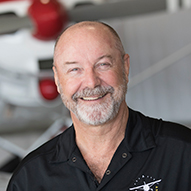The old adage is true: You don’t get what you don’t ask for. That’s of particular interest to flight schools. Especially so when it comes to purchasing one of the essential requirements for the operation of your business. In a word, fuel.
Consider this scenario. Your school has students who need to make cross-country flights to earn their private pilot certificate. At least some percentage of your customers are building time to meet the requirements for their instrument rating or commercial certificate. Rather than letting them roam far and wide with no guidance, there are advantages to setting specific destinations for them to choose from and encouraging them to plan their flights to those destinations. One of those considerations is the cost of those flights that is being passed on to you.
Certain aspects of those airports and the surrounding territory deserve scrutiny when determining a destination for your flight students. Runway length, local geography, international borders, and the availability of services are all important. But unlike those issues, the price of fuel will vary considerably and may be negotiable. Just as when shopping for a car, the asking price may be rock solid, or it may be a little more flexible. If you don’t ask you won’t know. So ask. You just might be surprised at what you find.
Should you choose to do a little homework before making that list of authorized cross-country destinations, you might find you can shave a bit off your fuel bill, helping your margin in the process. In Lakeland, Florida, the FBO offers discounts to flight school customers. “We charge them 40 cents off the retail price,” reports Lisa Hornsby of FlightLevel Aviation.
In Prescott, Arizona, Jeff “J.P.” Patrick works for Legend Aviation at Ernest A. Love Field. “Whenever we have flight schools that come into here,” J.P says, “we give them our base price.”That rate is five cents lower than the rate charged for transient pilots.
Neither of those discounts is going to make you rich. But a discount is a discount. Spending less to get the same quantity and quality of fuel is a good thing. The price you negotiate will depend on a variety of factors, not the least of which being the quantity of fuel you intend to purchase.
Ashley Angle of Volo Aviation at Tampa Executive in Florida explains it this way. “If there were a significant amount of airplanes coming in, and they were visiting us frequently, that [fuel prices] might be something we could negotiate.”
So be deliberate when helping your customers select cross-country destinations. You may find your short-term involvement in the planning process could reap significant long-term financial rewards for your business.



